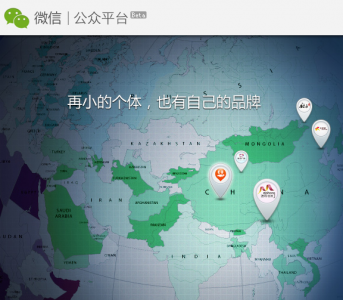Ethnic minorities in China may be facing discrimination online due to the country's new real-name registration policy. The law mandates all major portal websites to require that users verify their identity (by submitting their national ID number, home address, and other personal information) by June 2014. Since China's national legislature approved the real name registration system in December 2012, many online service providers have implemented the policy and asked their customers to verify their identity before signing up for their services.
Different platforms have unique identity verification procedures. Some have built automatic verification systems in their sites, while others process user applications on a case-by-case basis. Barat Semet, a Uyghur IT professional, recently revealed how the policy may threaten the communication rights of ethnic minorities in China, particularly the Uyghur, a largely Muslim ethnic minority group with roots in both East Asia and Europe.
In July 2009, peaceful demonstrations were broken up by police in an incident that led to riots in Urumqi, the capital city of Xinjiang Uyghur Autonomous Region, where most Uyghurs live. Since then, the Internet and mobile communication in Xinjiang has been subject to heavy censorship and surveillance. Prejudice towards Uyghurs as separatists appears to have increased, to the extent that even some ethnic dress, such as the Muslim prayer cap, has been banned in public venues.
Semet was born in Xinjiang, but his household registration number changed when he moved to Changsha, a city in Hunan Province, where he has lived for over ten years. Last month, he wrote a blog post [zh] expressing frustration over his inability to open an account on WeChat, a mobile text and voice messaging communication service developed by Tencent, one of China's largest tech companies. Semet wondered if his national ID number, which begins with 65, indicating that he was born in Xinjiang and was likely Uyghur, may have been the source of the problem. He suspected that he may have been experiencing discrimination by WeChat because of his ethnicity.
WeChat is a social media service [zh] that allows individuals and small businesses to develop interactive communication platforms with their customers or fans.
The WeChat platform Semet wanted to use was for football fans, nothing political. When he attempted to register for the platform [zh] on May 24, 2013, he submitted his real name, national ID number, home address, mobile phone number, home phone number and a close-up photo of himself. He submitted the completed application several times, but was rejected each time. On his seventh attempt, WeChat suspended his account and blacklisted his ID, claiming that the information he had submitted was fake.
He then tried to apply for the service using a different email address. Yet when he entered his ID information, a warning message popped up saying that his ID number had been black-listed because he had submitted fake information about his identity.
He called WeChat customer service the next day but reached only an automated system that provided no help. Eventually he was able to speak with a customer service agent online who asserted that the photo he had uploaded met the site's standards and promised to give him a reply within three days. But Semet never heard back from the agent.
Semet finally asked a Han Chinese friend [zh] to register and open the WeChat public platform for him. His friend encountered none of the problems Semet faced even though he completed the registration form exactly as Semet did.
In his blog post, Semet expressed frustration over the fact that WeChat customer service never responded to him. He cannot learn why they did not accept his application, nor can he find out which information the system identified as “fake”. As he has been blacklisted for using “fake” information, Semet will not be able to apply for WeChat services in the future.





2 comments